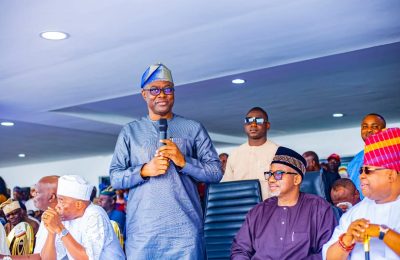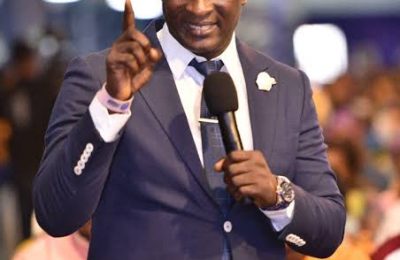

NIGERIANS worried about the downturn in educational performance in Nigerian primary and secondary schools must have had their worst fears confirmed with the latest report by the United Nations Children’s Fund (UNICEF) indicating that 75 percent of Nigerian children aged between seven and 14 years cannot read a simple sentence or solve a basic mathematics problem. The UN agency gave this startling verdict last week in a statement issued by its Country Representative, Ms Christian Munduate, to mark this year’s International Day of Education. Munduate said: “I join the global call to invest in people, prioritise education and urge Nigeria to deliver on the commitments made by His Excellency, President Muhammadu Buhari at the UN Secretary General’s Transforming Education Summit in September 2022 to end the global learning crisis…For children to be able to read to learn, they must be able to learn to read in the first three years of schooling.” Mundate said that UNICEF would support the commitment to transforming education and prevent the loss of hard-fought gains in getting children into school, particularly poor, rural children, and ensure that they remain in school, complete their education, and achieve their full potential.
She added that UNICEF, together with its partners, would continue to support federal and state governments to reduce the number of out-of-school children by providing safe, secure and violence-free learning environments both in formal and non-formal settings, engaging communities on the importance of education and providing cash transfers to households and to schools. She tasked the government to improve learning outcomes by expanding access to quality early childhood education, scaling foundational literacy and numeracy programmes, offering digital skills and life and employability skills to adolescents to enable the school to work transition, and increasing domestic spending on education to meet the 20 percent global benchmark by 2030 and to address the infrastructure and teaching backlog that are affecting all children’s access to inclusive and quality education. “As Nigeria’s presidential elections draw near, on behalf of UNICEF and the children in Nigeria, I call on all presidential candidates to include investments in education as a top priority in their manifestos,” she said.

If the UNICEF report proves anything, it is the fact that governments across the country, particularly since the return to civil rule in 1999, have not approached the education sector with the right attitude, and therefore not committed the right resources to education. If Nigerian children are to overcome their literacy and numeracy problems, this must start from governments at all levels having the right kind of attitude to education. We make this observation with history as a mirror before us. When the sage, Chief Obafemi Awolowo, declared his resoundingly successful policy of free education in the defunct Western Region, he aimed to use education as a liberating, empowering force that would help to free generations of people from the shackles of poverty and despondency. In other words, he aimed to use education as a tool for social engineering. Today, though, state governors declare “free education” without realising its true import; they see free education as the distribution of notebooks and the abolishment of tuition fees, paying little or no attention to quality delivery of instruction in well-equipped schools. The results are bound to be catastrophic.
If there is any concern at all about the state of education at the lower levels, then governments and education administrators should be more serious in what they do. The import of the UNICEF report is that the so-called basic education in Nigeria is not able to impart basic literacy or intelligence, which calls into question the effectiveness of the whole educational edifice. The fact that other levels of education can only be built on basic education makes this unsavoury report a threat to the entire education system in the country. Governments and educational administrators and teachers must apprehend the ugly implication of this report and revamp the structure of basic education in the country to make it effective and productive.
Among other things, the office of Local Inspectors of Education should be revived. When teachers know they are being spot-checked, they will sit up. Besides, it is fairly obvious that governments at all levels have to improve significantly on the learning environment, which would mean the provision of modern learning tools. Although the UNICEF report addressed literacy and numeracy, state governors would do well to realise that multimedia literacy is the in-thing among educators worldwide. Emphasis must shift from the culture of writing meaningless notes to using computers to solve problems. Nigerian children must be tech-savvy, and this must start at the lower levels. To achieve this, teachers have to be properly motivated while parents, on their own part, should pay more attention to their children’s education. It is important to do everything possible to reverse the current trend and put in place necessary remediation processes that would ensure that basic education serves its intended purpose effectively and efficiently. Everything that can be done should be done to effect the needed changes, and urgently too.








